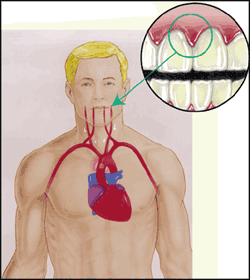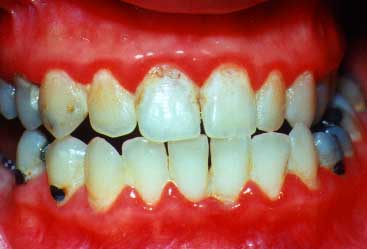>Periodontal Gum Disease
Understanding and Overcoming Mental Distress among African-American
Elevate Your Prostate Awareness
Marriage & Couples Counseling and Increasing Divorce Rate
How to reduce your risk of colorectal cancer
Health Initiative
Periodontal (Gum) Disease Links to Heart Disease and Stroke
By: Kevin Dancy, DDS, MS
Periodontal diseases, including gingivitis and periodontitis, are serious infections that, left untreated, can lead to tooth
loss. Factors such as smoking/tobacco use, genetics, puberty, pregnancy, and menopause can also affect the health
of your gums. Several theories exist to explain the link between periodontal disease and heart disease. One theory is
that oral bacteria can affect the heart when they enter the blood stream, attaching to fatty plaques in the coronary
arteries (heart blood vessels) and contributing to clot formation. Coronary artery disease is characterized by a
thickening of the walls of the coronary arteries due to the buildup of fatty proteins. Blood clots can obstruct normal
blood flow, restricting the amount of nutrients and oxygen required for the heart to function properly. This may lead
to heart attacks.
|
|
Another possibility is that the inflammation caused by periodontal disease increases plaque build up, which may
contribute to swelling of the arteries. Researchers have found that people with periodontal disease are almost
twice as likely to suffer from coronary artery disease as those without periodontal disease.
Periodontal disease can also exacerbate existing heart conditions. Patients at risk for infective endocarditis may
require antibiotics prior to dental procedures. Your cardiologist will be able to determine if your heart condition requires
Stroke
Additional studies have pointed to a relationship between periodontal disease and stroke. In one study that looked at
the causal relationship of oral infection as a risk factor for stroke, people diagnosed with acute cerebrovascular
ischemia were found more likely to have an oral infection when compared to those in the control group.
Remember: Brushing and flossing may actually save your life
Source: American Academy of Periodontology


